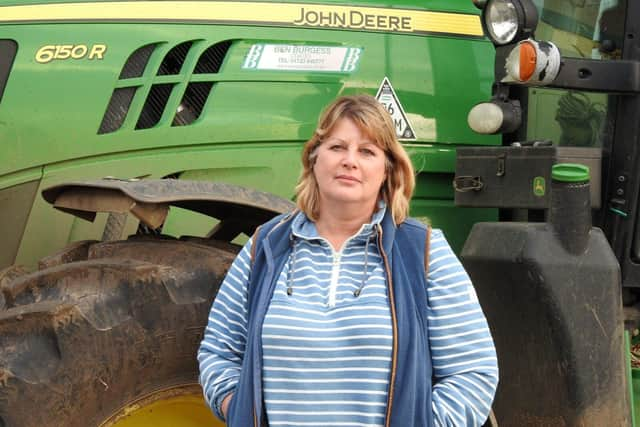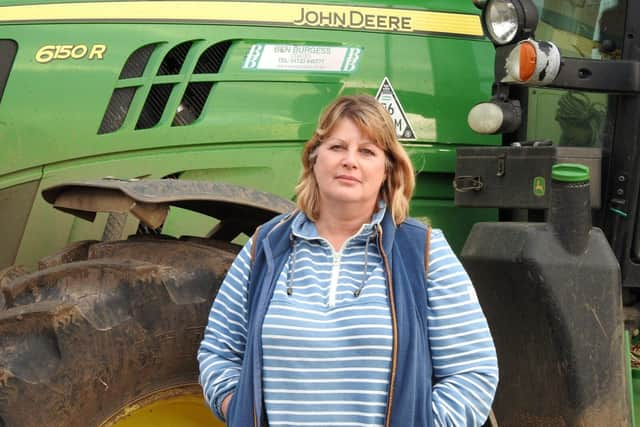Discover how Luton’s community adapts to road closures and infrastructure upgrades, turning short-term disruption into long-term sustainability and resilience. Learn more now!
As the national spotlight prepares to shine on the British farming industry, a prominent voice from Bedfordshire is advocating for greater support of local agriculture. Freya Morgan, Chair of the NFU Bedfordshire and Huntingdonshire, is urging public authorities to take the lead in promoting British farmers by increasing the use of locally-sourced produce in schools and hospitals.
A Vision for Sustainable Public Sector Catering

Morgan's call to action comes at a crucial time for the farming community, as she emphasises the importance of public institutions setting an example in championing homegrown food. By focusing on schools and hospitals, the initiative aims to create a direct link between local farmers and the plates of those served by public sector catering.
The Importance of Local Sourcing
Freya Morgan, in her role as Chair of the NFU Bedfordshire and Huntingdonshire, is making a compelling case for increased support of British farmers through public sector procurement. Her focus on schools and hospitals as key institutions for implementing this change highlights the potential for widespread impact on both the farming community and public health.
Morgan emphasises that by sourcing more British produce for these institutions, local authorities can play a crucial role in supporting the nation's agricultural sector. This approach not only benefits farmers but also ensures that students and patients have access to fresh, locally-grown food, potentially improving the quality of meals served in these settings.
Challenges and Opportunities
While the vision for increased local sourcing is clear, the article does not provide specific details on the current state of British produce use in public institutions or the challenges that may be faced in implementing such changes. However, Morgan's call to action suggests that there is room for improvement in the current system and that public authorities have the power to make a significant difference.
The timing of this initiative is particularly noteworthy, with the article mentioning that the national spotlight is set to shine on the British farming industry. This increased attention could provide additional momentum for Morgan's proposal and potentially lead to broader discussions about the role of local agriculture in public sector catering.
Potential Benefits for Bedfordshire
Although the article does not provide specific data on the potential economic impact for Bedfordshire farmers, the implication is clear that increased local sourcing could provide a boost to the region's agricultural sector. By creating a more direct link between local farms and public institutions, this initiative could help to stabilise demand for Bedfordshire's agricultural products and potentially encourage growth in the sector.
Moreover, the focus on schools and hospitals suggests that this initiative could have far-reaching effects on community health and education. Exposing students to locally-sourced foods could foster a greater understanding of agriculture and nutrition, while patients in hospitals may benefit from fresher, more nutritious meals.
Looking Ahead
As the Chair of the NFU Bedfordshire and Huntingdonshire, Freya Morgan's advocacy for this initiative carries significant weight within the agricultural community. However, the article does not provide information on specific next steps or how public authorities might implement these changes. It remains to be seen how local governments and institutions will respond to this call for increased support of British farmers through public sector catering.
The success of this initiative could potentially serve as a model for other regions, demonstrating how public institutions can play a vital role in supporting local agriculture while simultaneously improving the quality of food served to some of the most vulnerable members of society.
Education and Awareness
Implementing this initiative in schools could serve as a powerful educational tool. Students would have the opportunity to learn about the journey of food from farm to table, gaining a deeper appreciation for agriculture and its role in their community. This increased awareness could potentially influence future consumer choices, creating a generation more inclined to support local farmers and sustainable food practices.
Economic Resilience
By creating a more stable market for local produce through public sector procurement, this initiative could help buffer Bedfordshire's agricultural sector against economic fluctuations. A consistent demand from schools and hospitals could provide farmers with the security to invest in their operations, potentially leading to increased productivity and innovation in the sector.
Public Health Implications
The focus on fresh, locally-sourced produce in hospitals could have significant implications for patient recovery and overall public health. Access to nutritious, high-quality meals could potentially contribute to faster recovery times and better health outcomes. This aspect of the initiative aligns with broader public health goals and could serve as a model for healthcare institutions nationwide.
Collaborative Opportunities
This call to action opens up possibilities for increased collaboration between farmers, public institutions, and local governments. It could lead to the development of new partnerships and innovative solutions for food distribution and storage. Such collaborations might also spark research initiatives to quantify the benefits of local sourcing, providing valuable data for future policy decisions.
